One Hundred Years of Women in Business

Since the establishment of the Ross School of Business 100 years ago, women have fought for progress and equality in the business world.
As a field where women were not initially welcome, the fight for equity and inclusion in business has been an uphill battle. But despite many hurdles, both societal and financial, trailblazing women transformed the business field, and their efforts are reflected in the state of business today, both at Michigan Ross and around the world.
Below, learn more about the history of women at Michigan Ross and hear from some of our most successful women alumni on their experiences as leaders in modern business.
Jump to C-Suite Q&A
Barriers to education for women
Women had minimal participation in business in the United States until the 1940s, facing obstacles in pursuing careers due to limited educational options, scant resources, and discrimination. The only socially accepted roles for women outside the home were typically 'caring' professions, like nursing or teaching.
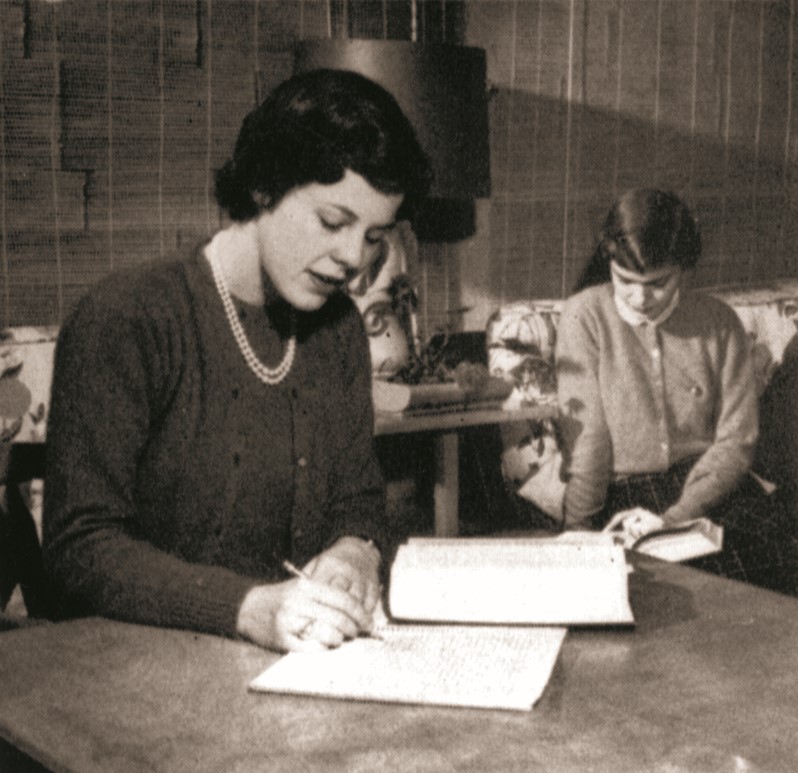
Even after gaining the right to legally own property in 1900, the fight for women’s financial independence extended for many years. Just 35 years ago, in 1988, women finally gained the right to take out a loan without male endorsement.
Limits on financial independence and social barriers kept women away from the workforce, particularly in the business field — but there were some important exceptions to this trend.
The first women at Michigan Ross
The first female student to graduate from Michigan Ross enrolled in 1924, the year of its establishment. Her name was Sih Eu-Yang Chen, and she came to Ann Arbor from China to attend school in the United States after receiving the highly competitive Barbour Scholarship.
When she graduated on June 14, 1926, she wrote, “I consider it a very important day, for I am the only girl getting an MBA from the Business School of the University of Michigan.” She went on to become chief accountant of a corporation in Shanghai called the New Asia Development Corp. and later worked as an English teacher in Hong Kong.
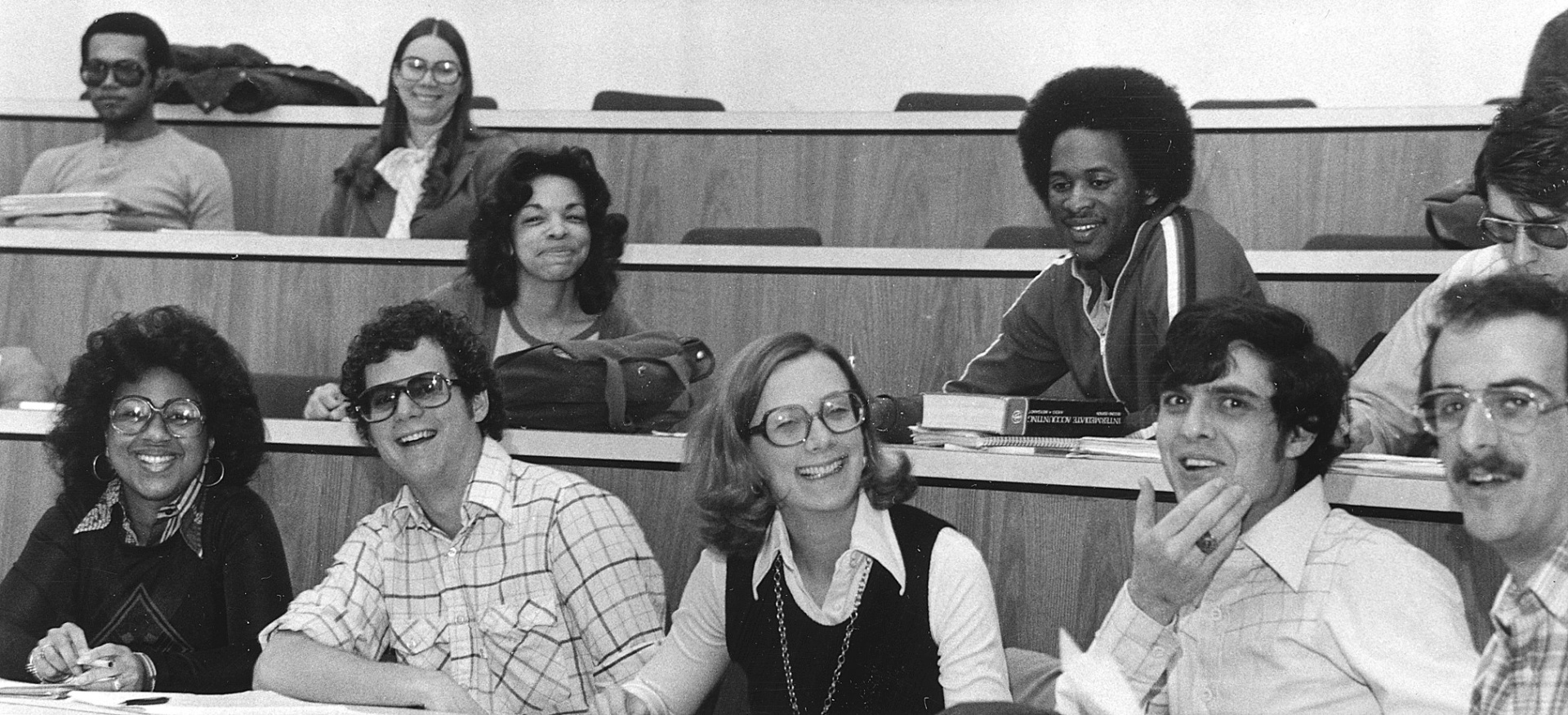
Chen’s attendance at the school initiated the enrollment of several other women in the following years, including Helen Sanford and Dorothy Hagen in 1928 and Elizabeth C. Black in 1929, amongst others. One of them being Mary Parnall who held the highest GPA in the Class of 1931 and was honored as a speaker at the school’s alumni conference that year.
On the instructor side, the school's first female faculty member, Margaret Elliott Tracy, joined in 1924 and climbed the ranks to become the first female full professor at Michigan Ross, instructing influential future leaders like President Gerald R. Ford.
These women, both students and professors, were pioneers for others who would follow them in the business space and paved the way for women to not only get a business education but also to make a career for themselves.
Ross, women, and war
In the early 1940s, the number of young women enrolled in business school sharply rose. With many men called into military service due to World War II, there was an unprecedented demand for women in the workforce. Women, who had once been looked over or outright denied by industries like banking and accounting, were now in great demand.
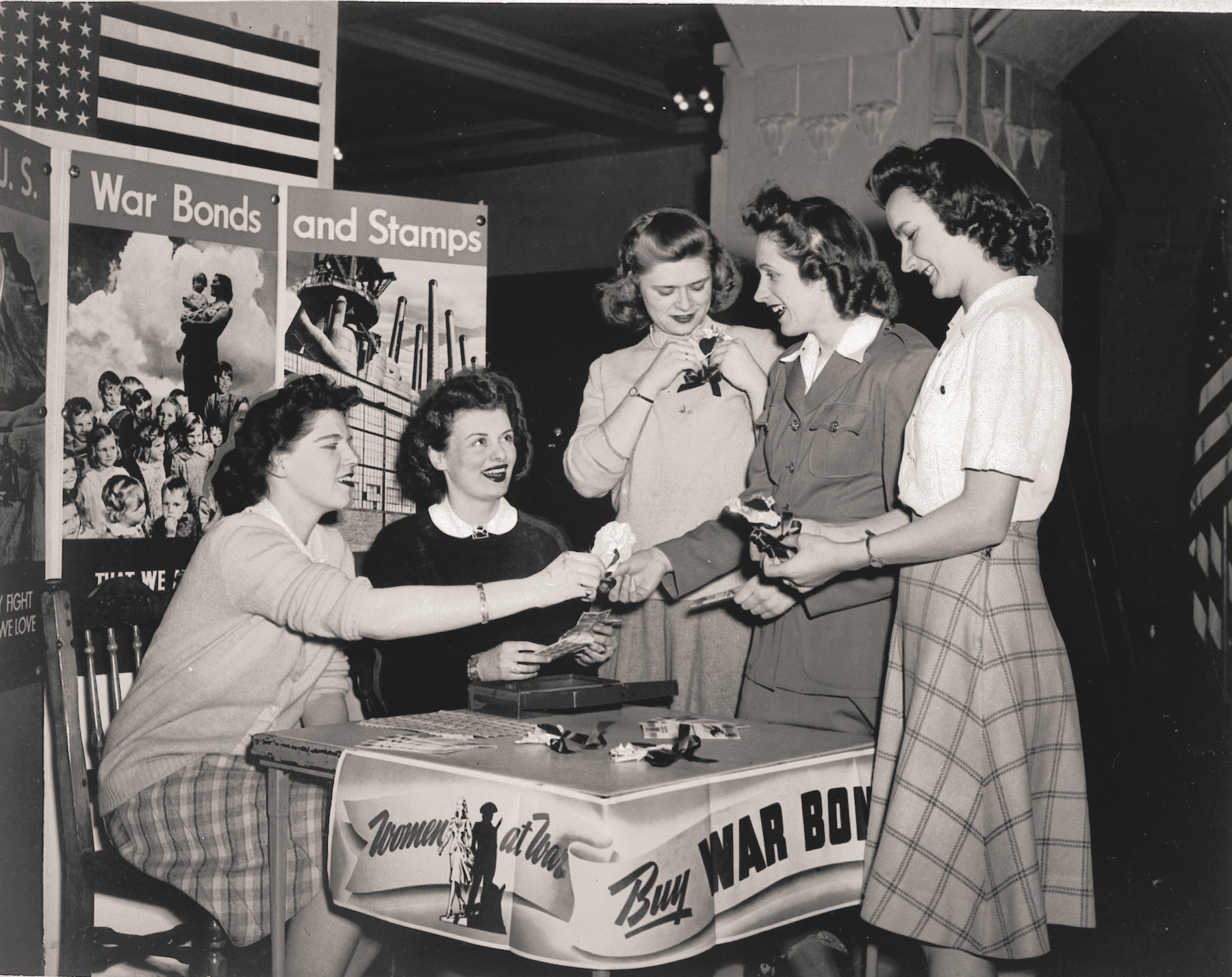
Many women moved in to fill the roles left behind by men who had gone to war, becoming secretaries, bankers, accountants, and more. Women proved they could excel in roles that had been previously closed off to them, and though many were fired or demoted when men returned from war, they began to fight with a new fierceness for equal opportunity in the workplace.
By the 1950s, women who remained in the workforce were finally respected enough in their new roles that they were beginning to be actively sought out by corporate recruiters. This increased demand for women in the workforce inspired an influx of women to attend business school in response. In 1958, a chapter of the National Women’s Business Association was established at the University of Michigan, reflecting the growing presence of women on campus.
Fighting for the future
Since the 1950s, women have made significant progress in the workplace and the business world. According to the U.S. Bureau of Labor Statistics, about one in three women participated in the workforce in 1950. By 1998, that number was up to three out of every five women. And, in 2023, women’s employment hit a historic high. According to the Society for Human Resource Management, 77.5% of women aged 25 to 54 participated in the workforce as of April 2023.
At Michigan Ross today, incoming Full-Time MBA classes consist of approximately 40-45% women. There is still work to be done to make business an equitable field for all, but women, both at the school and alumni, are eagerly working to give other young women the opportunity to pursue their business dreams.
Women at Ross are supported by clubs like Michigan Business Women and events like Ross Women’s Weekend. There are also programs like the Och Initiative for Women in Finance that aim to help young women break into the finance industry.
Michigan Ross women in the C-suite
While more women are working now than ever before, they are still underrepresented in corporate C-suite roles. According to a report from McKinsey & Co. and LeanIn.Org, just 25% of executive-level positions are held by women.
Despite this gender imbalance, many women continue to defy stereotypes and expectations, building successful careers for themselves in business and working to make things easier for the next generation.
We asked Michigan Ross alumnae in C-suite roles to tell us about their careers, lives, and more to help paint a picture of who women in the workforce are today — and who they can be tomorrow.
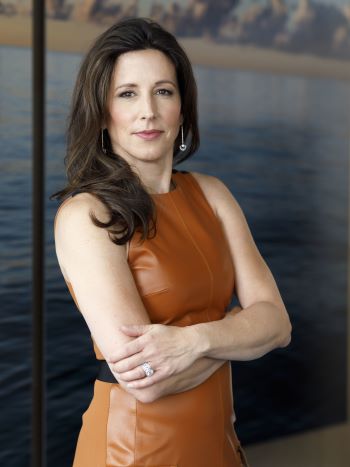 Jenny Just, BBA ’90
Jenny Just, BBA ’90
Co-founder, PEAK6 Investments
After starting my career on the trading floor in Chicago, in 1997, I co-founded PEAK6, one of the first off-floor proprietary options trading firms. Since then, I have followed my interests and intuition to grow PEAK6 into a multibillion-dollar financial services company with brands including PEAK6 Capital Management, PEAK6 Strategic Capital, Apex Fintech Solutions, PEAK6 InsurTech, and Zogo. In total, I have started, turned around, and/or sold more than 15 companies, many of which have been failures. But it’s the lessons learned from those failures that have led to some of my biggest successes.
After growing up with four brothers and spending most of my career in male-dominated spaces, my passion lies in finding opportunities for women to succeed at every table — from the classroom to the conference room, to the poker room, to the boardroom. This led me to launch Poker Power in 2020 with my daughter Juliette, a woman-led company that uses the game of poker to teach strategic thinking, capital allocation, and decision-making skills.
What is your proudest career achievement so far?
Losing millions of dollars. Yes, I know it sounds crazy. But here’s the thing — those big losses have helped me have even bigger wins.
Why? It’s because of something I like to call compound experience. It’s like compound interest — every time you fail or lose, you learn something, and over time those experiences compound on each other and become more impactful.
So what I’m proudest of is that I had the opportunity to take a lot of risks early in my career, learned a lot quickly, and was able to leverage those learnings to take PEAK6 from a small options trading shop to the multibillion-dollar business it is today.
As a female leader in the business world, what are some barriers you have faced?
When I started out as an options trader at O’Connor and Associates, I knew I could compete with the men. But I also knew that as one of the few women there, I never wanted to give the appearance of the men carrying more weight. So from the start of my career, I worked harder than most. I learned how to think about my time holistically and make sacrifices where needed.
But over the years, I learned it isn’t just about working harder; it is also about working smarter. I learned how to fold early and how to push all in when the really good opportunities come along. Essentially what I learned is how to play poker. The funny thing is, I didn’t even know it until four years ago when I learned the game for the first time with my daughter.
That’s why I am now encouraging women and girls everywhere to learn this game. Poker is not about gambling. And it’s not about lying or deceit. It is a proven game of skill that teaches you how to strategize, how to read people, how to negotiate, how to assess risk and reward, and how to fail but be ready to come back for more. These are skills that women and girls desperately need not only to take their seats at the table but also to make their voices heard at the table, compete, and win.
How has Michigan Ross/getting a business education impacted you on your career journey?
While at the University of Michigan, I was able to explore many of my interests and skills, from art and architecture to math and physics, and ultimately be accepted into the business school. It was there that I got the chance to interview with O'Connor and Associates. Ending up at O'Connor was completely accidental, and at the time, I knew nothing about options trading. However, learning about options trading early in my career accelerated my understanding of money and risk in ways that have continued to impact me today. The Michigan network has also served PEAK6 well, as several of our partners and many of our employees are alums. I am excited to see where the Michigan Ross network takes my son, John, who is currently pursuing his MBA at Ross.
What inspires you/drives you to do your best?
I want to see more women making decisions around money. I want to see 50% of the market participants, the investors, the founders, and the CEOs identify as women. One hundred years ago, when Michigan Ross was founded, women were only a fraction of the drivers. It was considered risky and a man's job to drive. Today, women are over half the drivers. The takeaway is that participation percentage is not a reflection of actual ability, and eventually, the two catch up to each other. But how do we make it happen faster regarding women and money? For years, that has been my motivation.
Do you have any advice for the next generation of women in business?
Take more risks. Be in the money, not just around it. And if you want a place to practice, play poker.
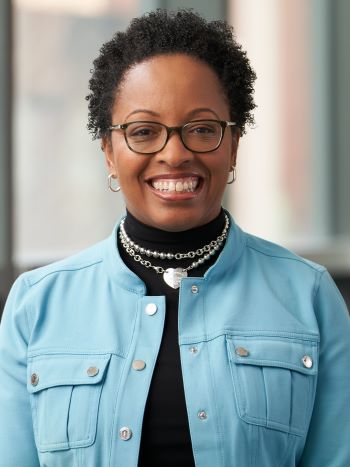 Tiffanie Boyd, BBA ’94/MBA ’98
Tiffanie Boyd, BBA ’94/MBA ’98
Senior Vice President and Chief People Officer, McDonald's USA
I grew up in Detroit and was raised by my mom and maternal grandparents. My grandparents pastored a church and also owned a home for mentally disabled men, where I had my first job. My mom didn’t have the opportunity to go to college, but she was smart and often had a side business (selling BBQ dinners, cakes, pies, you name it) in addition to her regular job. I learned a lot by watching her. My upbringing heavily influenced my professional work because I grew up surrounded by hardworking people focused on helping others. It's how I see my work today, one of service to help individuals and organizations be their best. I’m passionate about work and the important role it plays in people’s lives.
I’m also passionate about family. My husband and I met at U-M in the early 90s, and we've been married for 26 years. We've navigated a lot together: business school, work transitions, seven relocations, two sons, and other life events. Both of our sons are now students at U-M, which is really fun for our family.
What is your proudest career achievement so far?
I am proud to be a senior executive at a Fortune 200 company that is one of the most recognizable brands in the world. It is an achievement I wish my mom were still alive to see. It means I have the privilege of making decisions and leading work that impacts the lives of thousands of people every day. I don't take this responsibility for granted, and I am most proud when my decisions help us create a better workplace, build better leaders, or provide more expansive career opportunities.
As a female leader in the business world, what are some barriers you have faced?
Being female, Black, and historically younger than others expected me to be, I have often been underestimated, mistaken for not being the leader in charge, or simply misjudged. I have maintained my confidence and refused to let someone else's opinion of me define who I am. Instead, I try to assume positive intent, which allows me to be more willing to meet people where they are and educate them on the bias in their thinking. I also remain focused on the higher-order mission of what I’m in a position to accomplish. Achieving great results will help you overcome lots of barriers and ultimately open doors for others, so my goal is to stay focused on delivering undeniable results.
How has Michigan Ross/getting a business education impacted you on your career journey?
The Michigan Ross experience taught me so much about solving problems and leveraging the collective talent of a diverse team. My time at Ross also really built my confidence as a business leader because of the exposure to so many real-world learning opportunities. It was a place where I could celebrate my success and find safe spaces to deal with personal struggles. I had mentors in Alfred Edwards, Paula Caproni, the entire admissions team, other well-known faculty, and my fellow students. The diverse, team-oriented, practical, yet intellectual environment at Ross is one I have tried to cultivate in the corporate spaces where I now exist.
What inspires you/drives you to do your best?
I believe we all have a unique purpose to fulfill and a special contribution to make to the world. I want people to see the nobility and find meaning in their work, regardless of their specific job. It is important for companies to have people who share this belief in positions of influence. Companies need leaders like me who love the competition of business and also care deeply about people. Leaders who value the contribution of the most senior executive and recognize the importance of the entry-level worker. Leaders who know what it means to be underestimated, ignored, and second-guessed, yet continue to rise. This is my mission.
I am inspired by my grandmother, who grew up picking cotton in Mississippi and, with only a high school education (which she earned later in life), went on to run a small business, co-pastor a church, and raise two generations of children with my grandfather. When things seem hard, I think of her. I think of what she accomplished with so little. I am one of her many investments, and I want to yield a strong return for her.
Do you have any advice for the next generation of women in business?
Say yes to opportunity. I often see women second-guess their abilities and talk themselves out of making big moves. Women are also more likely to pass up opportunities today based on what they believe will be true 10 years from now. While this second-guessing and overthinking is happening, you could miss out on something wonderful, like the opportunity to grow personally and professionally. Don't be afraid to do the unconventional, to take the hard job, or to relocate to a new city. You will grow, build new skills, and expand your network. Plus, if it doesn't work out as planned, you can always try something else — but you won’t know if you aren’t willing to bet on yourself and say yes.
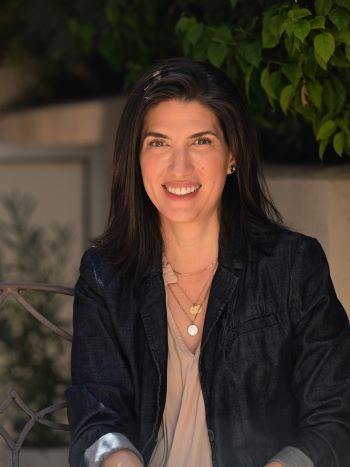 Stephanie Atlas Bohn, BBA ’98
Stephanie Atlas Bohn, BBA ’98
Chief Marketing Officer, CHIEF
I am from New York and have lived in Los Angeles since 2001. I moved west to pursue a career in film, and after 13 years, I made the leap to tech start-ups. My first job was as a waitress at Scorekeepers, and I ate way too many fried pickles. My personal passion is advocating for inclusion, accessibility, and representation. My 9-year-old daughter Sadie is disabled, and she inspires my DEI work. I also have a 12-year-old daughter, Lucy, who is a champion for her sister and has helped us raise millions to fund curative research for Rett syndrome. In my work leading marketing at CHIEF, I am helping to drive leadership excellence for senior executive women so they can bring more incredible women up the corporate ranks.
What is your proudest career achievement so far?
My proudest career moments generally involve me pursuing opportunities no one would otherwise consider me for. In 2011, I pitched myself for a non-existent job leading Rotten Tomatoes shortly after it was acquired by Warner Bros (my employer at the time). To me, it felt as though the studio wasn't appreciating the potential value that the Rotten Tomatoes brand represented, and despite having no experience in digital publishing or general management, I developed a business plan on spec and asked the studio president to give me a shot.
Having proved myself as ambitious, passionate, and creative in other leadership roles, I earned his trust, and he gave me the green light. In fewer than two years, I helped the team drive double-digit site traffic growth, launched a data licensing business, and worked with studio partners across the industry to feature "Certified Fresh" in their ads, which meaningfully grew brand equity and traffic. Partnering with incredibly talented colleagues across editorial, sales, and creative, I am proud to have helped take Rotten Tomatoes to new heights, which resulted in an eventual sale to Comcast.
As a female leader in the business world, what are some barriers you have faced?
One of the biggest hurdles I have faced as an executive is balance. There have been more boxes I wanted to check than hours in the day to check them. I learned over the years you can do it all, but something (at least one thing) must give. For me, it's been sleep and self-care.
My husband is an entrepreneur, and fortunately, he has schedule flexibility to share childcare duties. Our situation is fairly unique, however, as our younger daughter Sadie has complex medical needs. We are grateful to have an exceptional team of caregivers who allow us to be the best parents we can be (and not Sadie's therapists, nurses, etc). It also enables us to maintain our careers.
Most moms I meet in the disability community are no longer in the workforce. I deeply respect the choice. My career is a part of my identity, and I have no interest in giving it up. My career not only gives us financial freedom, but it also offers me a platform to do the DEI work that means so much to me.
How has Michigan Ross/getting a business education impacted you on your career journey?
Without my Michigan Ross BBA, I am fairly certain I would not have been offered my internship or my first job at American Express. Recruiters visited campus specifically looking for Ross students concentrating in marketing.
Five years later, when I was applying for jobs post-MBA, the president of Warner Bros. Home Entertainment decided to limit new hires to three schools, one of which was his alma mater, Michigan Ross. I was hired and worked at Warner Bros. for 13 years.
I learned a great deal in my classes, but what I remember most are the opportunities I took to learn public speaking and lead extracurricular clubs. I was the BBA president of the marketing club, and along with a few MBA students (while I was a BBA), I co-founded the media and entertainment club. I didn't know it then, but I was learning to network, which is probably the most important skill in business.
What inspires you/drives you to do your best?
The prospect of a cure for my daughter's disorder, Rett syndrome, is my fuel. Financial success means I can support the Rett Syndrome Research Trust to accelerate research. Since Sadie's diagnosis, we have donated and helped raise over $10 million, and the FDA recently approved two clinical trials for children. It is beyond exciting to imagine that Sadie might speak again, take her first step, and live a life without seizures.
Do you have any advice for the next generation of women in business?
My advice for the future generation of women in business is to feel proud admitting out loud, "I am ambitious." This word ambition has historically been perceived negatively when associated with women, while men wear it as a badge of honor. It is a gift to have ambition, and it will fuel you to do extraordinary things. Be ambitious and tell people.
And be kind.
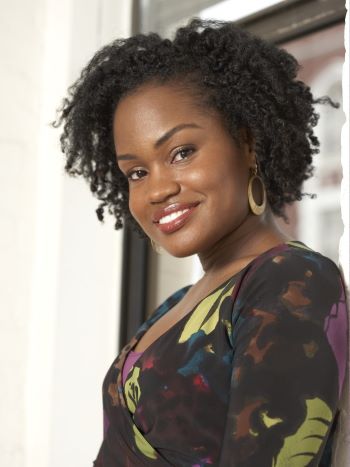 Russatta Buford, MBA ’05
Russatta Buford, MBA ’05
Chief Operating Officer, Ms. Foundation for Women, Inc.
I am increasingly getting away from defining myself in professional terms, but I love systems, operations, and quandaries as a former chemical engineer who jumped to financial services and then the social sector. I grew up in College Park, Georgia, but I'm originally from Flint, Michigan. When I saw the taxes taken from my first paycheck in New York City, I became a bonafide New Yorker! I love riding my bike around the city because it allows me to explore neighborhoods. Beyond that, I enjoy volunteering at my neighborhood food kitchen, keeping busy by serving on my condo board, and losing myself in podcast episodes. I got married two years ago to a fellow Wolverine and am a proud stepmom to a teenage daughter who will soon be off to college.
What is your proudest career achievement so far?
My proudest career achievement is seeing the growth and success of the people I have worked with and supervised. When I’ve helped someone grasp a new skill, prepare for a promotion, or better integrate work and life, I feel like I’m winning.
As a female leader in the business world, what are some barriers you have faced?
As a Black woman, I know I have been judged by others based on my appearance. Early in my career, I found that an interviewer’s eyes were focused on my hair when I wore it in its natural state, which is how I wear it 99% of the time. I had colleagues who commented that I looked “professional” on those rare days that I would straighten my hair. Even with more 20 years of experience, I had a well-meaning advisor give me advice on how I should wear my hair. When unfairly judged in this way, I remind myself that there are no right or wrong ways to respond though it’s important to speak out in a way that feels comfortable in the situation.
Another barrier that I have had to face is pay inequity. Like many other women, I’ve been grossly underpaid despite research and candid discussions with peers about salary. When I’ve been unable to renegotiate satisfactorily, I have instead determined how I can use that role to develop new skills and rack up accomplishments that will prepare me for the next role.
How has Michigan Ross/getting a business education impacted you on your career journey?
I’ve grown more comfortable with my ability to ask probing questions, integrate disparate information, and break problems down into their component parts due to using the case method across so many courses. This way of group problem-solving has undoubtedly elevated the outcomes of teams I’ve led and also reminded me of the work culture in which I thrive and hope to create for others — one where diverse perspectives are valued and invaluable.
My Multidisciplinary Action Project with Habitat for Humanity International gave me a glimpse into a nonprofit career years before I decided it was for me, but I’m so grateful. The project was so deliciously complex that my team was split across countries in Africa, Europe, and Latin America to better appreciate the role of culture and local infrastructure in our singular recommendation.
What inspires you/drives you to do your best?
From an early age, my family ingrained in me that excellence, not perfection, is expected of me. My mom usually worked two, but at times three, jobs to provide for our family. Seeing her work ethic and integrity nurtured in me a profound appreciation for those who work tirelessly under challenging conditions. I aim to do work that can generally ease the load, create opportunities, and deliver more resources to others.
Do you have any advice for the next generation of women in business?
Do not allow work to become the source of your self-worth, validation, and identity. It is not! You are so much more than how you earn a paycheck. Instead, find joy and satisfaction in how you do your work and who you can positively impact, because you can replicate that in other areas of your life.
Historial photos courtesy of the Bentley Library. University of Michigan. Ross School of Business. “B-School History, 2 of 3, 2005.” Bentley Historical Library - University of Michigan, 1 Jan. 1970, deepblue.lib.umich.edu/handle/2027.42/144460. |







